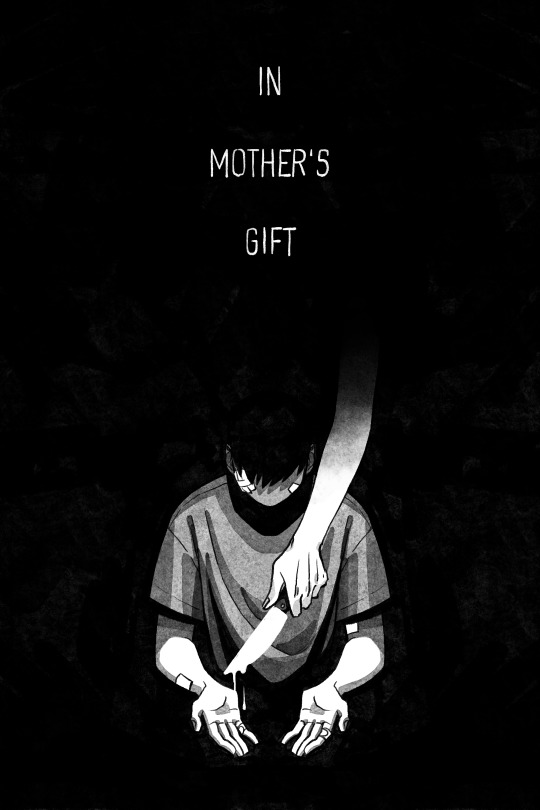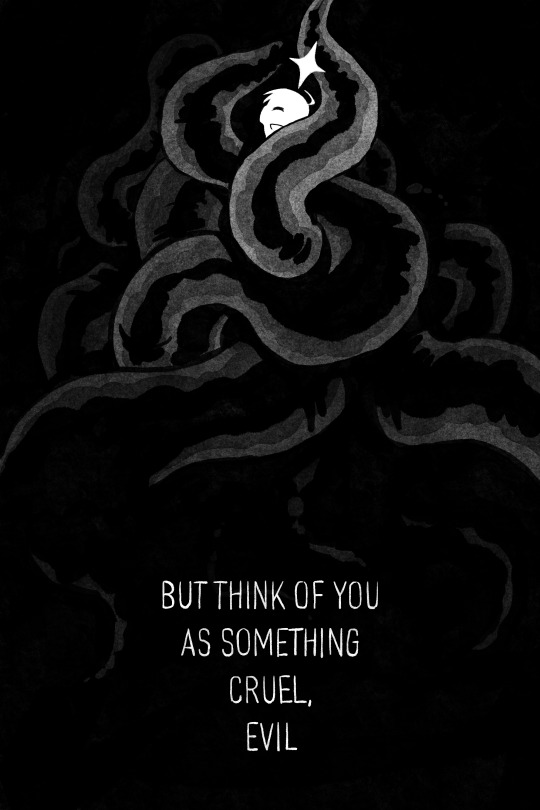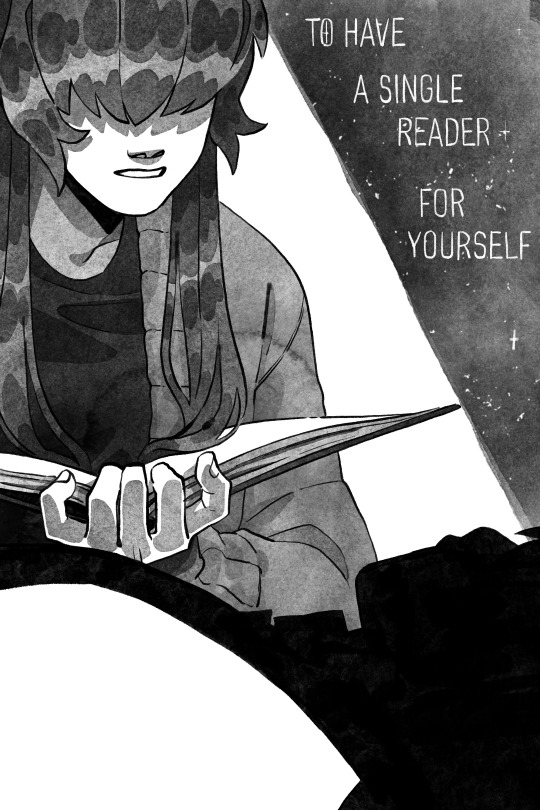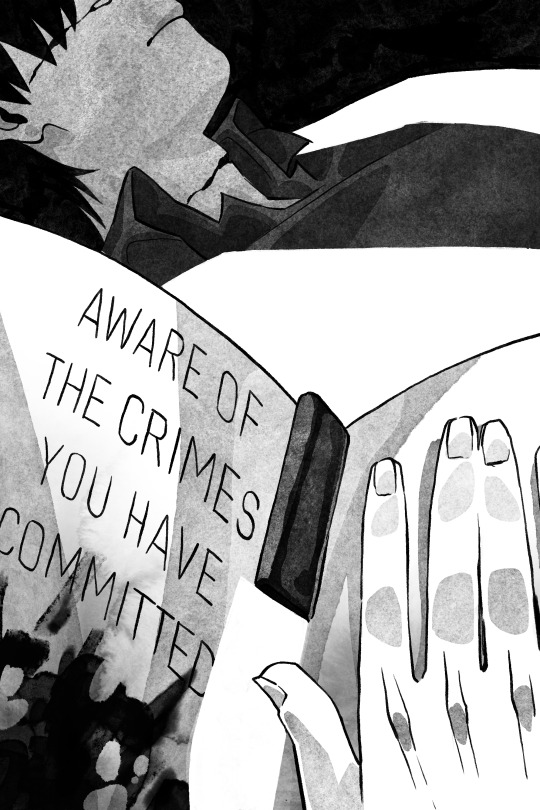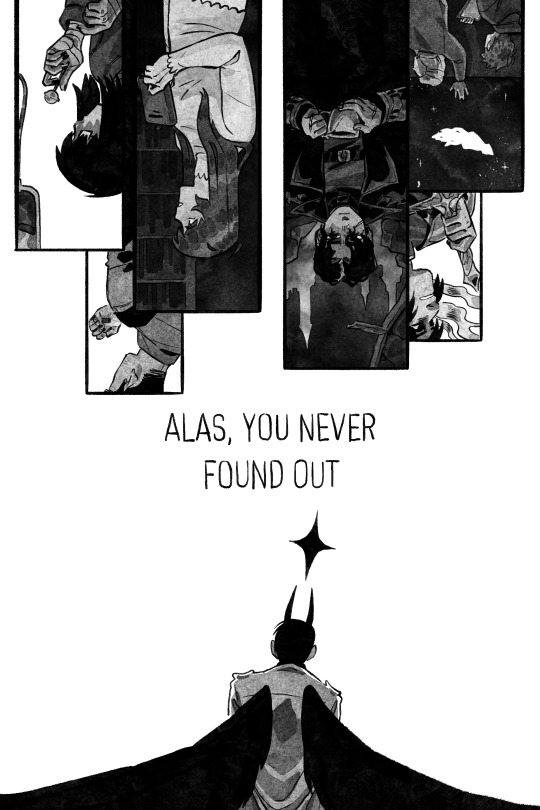WARNING: NO TAGS HERE! DO NOT FOLLOW IF YOU NEED TAGS! I don't have the emotional, mental, or physical energy to tag every post or even just the obvious triggers. Genderfluid Asexual + lover of penguins and cats + fan of Homestuck and the MCU and now ORV and various other webnovels/manhwa + person with depression and ADHD Avatar by @thatneoncrisis
Don't wanna be here? Send us removal request.
Text





This is an interaction that kept playing in my head. Last night, when I should have been doing other things, I caved in and scratched this up so it existed. I have a soft spot for mabel and therapy bill being buddies :')
7K notes
·
View notes
Text
Why do all the beautiful, colorful vintage bathrooms end up in the wrong hands. Come here. I would treasure you
21K notes
·
View notes
Text
There’s something to be said about Percy outliving the version of himself that was expected to die on his 16th birthday and having to relearn how to live without a rapidly approaching deadline constantly hanging over his head and coloring every aspect of his life
447 notes
·
View notes
Text
Adding Texture Into Your Campaign
What is Texture?
I'm talking about all of the little details that add up to create a complete description. Texture is the color of a sword's hilt, the sound of distant rumbling thunder, or the smell of baked pies as one passes through a village. It's knowing the reason why the villain is so villainous, and hinting at secrets that are never revealed. Everything that makes the world feel like a place where people live, rather than just an exercise in problem-solving.
Chances are, you already have some texture in your game. If you are running a pre-published adventure or world, there are almost certainly many little details that you normally don't see in your homebrew adventures. The goal is to add enough texture into your game so that your players won't notice the difference between a store-bought adventure and a homebrew.
I use the word "texture" for these details because for me, they are the difference between a flat, predictable description and one that is alive and vibrant. When adding details to your game, your goal should be to have enough volume so that the descriptions blur together into a patina of verbal imagery.
Texture cannot exist in a vacuum; if one part of an image has texture and the remainder does not, it will be obvious. Players should not be able to pick out what is important to their plot based on the level of detail in your description. For example, pretend your DM gave you the following description:
You enter the wizard's study. There are some bookcases, a desk, and a chair. There are books all over the place, and a single red quill pen, eight inches in length, stands in a brass pot of ink on the desk.
Nine out of ten players will go immediately for the pen. Why? Because it was the only item in the room truly given texture. The rest of the area was painted in only in the broadest of strokes. If the DM was trying to set that quill up as a clue of some kind, he has now robbed the players of the opportunity to discover that on their own. Now, consider the following alternative:
You enter the wizard's study. A musty smell fills the air, and swirls of dust follow you as you move. A pair of oak bookcases sit on opposite sides of the room, each filled with leather-bound tomes in assorted shades of brown. On the left bookcase, one shelf has broken, spilling its contents over the shelf below and onto the floor. A massive desk, at least seven feet in length, fills the center of the room, with dozens of tiny brass-handled drawers. A large book lies open on the desk, near a single red quill pen, eight inches in length, standing in a brass pot of ink.
The DM has given the exact same description of the pen, but has instead hidden its importance by giving detailed accounts of the room's furnishings. He knows that the only important clue in the room is the pen, but the players do not. Their actions will thus deal with the entirety of the room rather than the metagame thinking that would lead them to the pen. One might decide to check out the broken bookshelf, another might want to check the desk drawers. If they eventually look at the pen and discover its relevance, they will feel that much more of a sense of accomplishment.
This example also illustrates one of the key features of texture: it is most often irrelevant. In other words, if the players have a mission to accomplish, most of the texture you put into your descriptions will have no direct bearing on that mission. But that's the point; if I go to mail my phone bill, the fact that I pass a parked police car on the way to the mailbox isn't important. It does, however, tell me something about the immediate area and what might be going on there. This is why adding texture to your game creates the illusion of reality; you are basically giving players proof that the world is turning with or without them.
Here are 5 simple ways you can add texture to a room or character description:
Color: People spend a lot of energy making sure the things they own are a pleasing color. Anywhere intelligent beings live, there is the opportunity for changing the color of the walls, the doors, the furniture, the upholstery, the curtains, etc. Of course, natural settings can also have a bewildering variety of unexpected color. Why talk about a tree when you can talk about an ancient, grey-barked tree with green mossy overgrowth climbing its branches?
Brokenness: Things break, often. Whether they have been repaired or not is a good indicator to the players about the level of attention a room receives. How well they are fixed might also be a clue; if the bookshelf was propped up with another book but generally left broken, it says that the owner doesn't care too much.
Juryrigging: Spaces are often not used in the manner for which they were designed. People tend to adapt a room or object to the purpose they require, rather than the crafter's intent. This is especially true of dungeons, where the current inhabitants almost certainly did not build the place. Think about how they may have altered the room's purpose, and what changes they might have made as a result.
Bodily Functions: Living creatures need to eat, sleep, eliminate, and possibly mate. If you set up a monster's lair in a location where the occupant cannot realistically achieve all of these needs, it will be far less believable. Likewise, NPCs also need to fulfill these functions, and often at the worst possible time.
Scars: Creatures who are surviving in the wild or who fight regularly should be scarred, especially if they do not have access to healing magic. Scars hint at a story that the player's don't know; they imply that the creature has lived an entire life up to the point when it appears "on screen". An Owlbear with a jagged scar across its beak is more memorable, and perhaps more fearsome, than one without.
Those are just my opening thoughts on the subject. I'll be posting more examples of Campaign Texture in the future. In the meantime, dm me! I'd love to hear about descriptions from your campaign of which you are particularly proud of!
115 notes
·
View notes
Text
Hey if you own a business I need you to repeat after me:
I will not let my web developer manage my domain registration.
My domains are my responsibility and they cannot be handed to a contractor.
If I do not control my domains, I do not control my website.
If my domain is paid for on somebody else's credit card, it isn't really mine.
I will read every contract carefully and abide by its terms.
If the terms of a contract are not agreeable to me, I will amend them until the contractor and I both agree to and are aware of the terms.
I will pay my contractors in a timely fashion.
I will not burn bridges with my contractors.
I will pay for domain registration myself, and will never grant anyone else complete control over my domain.
I will not let my web developer manage my domain registration.
502 notes
·
View notes
Text
kdj is simultaneously a night owl and an early bird because he's awake at 6am and no one knows if it's because he's waking up or he hasn't slept and just crashes out every couple of hours throughout the day lmao
He's schrodinger's sleeper.
Someone will say they just talked to him and two minutes later he'll be found passed out in a chair fucking up his spine with the worst posture known to man before someone puts him on the couch/in bed
I just thought this was a funny idea
29 notes
·
View notes
Text
Got inspired to write for ORV so here’s a snippet of a fic im working on that kinda works on its own :)
Change is Not an Instance
(Spoilers for the Dark Castle arc ahead)
The first time the innocuous thought made its way into his mind, he was too busy using the last of his strength to shove his sword into Kim Dokja’s stomach to give it any time to process.
He’s beautiful.
It wasn’t an unusual line of thought. He’d always believed Kim Dokja to be attractive—long lashes, silken hair, slim waist—but there wasn’t anything more to it other than an appreciation of aesthetics. He’d found it strange when the other incarnations of Seoul had given him the title “Ugliest King,” but he figured it must’ve come down to preference or jealousy.
It was, however, the first time he meant it beyond just physical features.
Wings sprouted from Kim Dokja’s back, torn from the party members attempts to keep him grounded. Horns curved alongside his head, just as red as the blood dripping down his sword. Black veins crawled up his neck, framing his face and highlighting the strange red glow within his eyes. But what truly stood out—what forced that little innocuous thought to pierce his mind—was Kim Dokja’s smile. It was small and wrinkled from pain at the edges; blood coated his lips like a hellish gloss. But beyond it all, it was satisfied. As if his death were a job well done. It didn’t reach his eyes, clouded by pain and blood dripping from his lashes, but it did reach Yoo Joonghyuk. Its grip was as soft as the smile but as strong as its owners will to sacrifice anything and everything for the sake of the company.
A part of him—no, a majority of him—was furious with Kim Dokja. He’d had it all planned; was ready to regress knowing Kim Dokja could lead their companions to the end. But he should’ve known that fool would have something up his sleeve, he’d always been strangely adamant about keeping Yoo Joonghyuk alive in this turn. In doing so, he’d left his friends and his newfound incarnation behind with only the fragile promise that he’d somehow come back.
And yet, as an end more final than death pulled Kim Dokja apart at the seams, he looked to Yoo Joonghyuk and offered that satisfied smile.
“Let’s meet again, Yoo Joonghyuk.”
Despite its connotations, the statement felt final, a conclusion to the uniquely singular story that was Kim Dokja. In that, he’d felt a sense of understanding so deep and so piercing, he’d almost forgotten the rest of the company’s presence.
To regress meant to have hope even in the face of finality—and as a regressor, he’d come accustomed to this relationship between hope and hopelessness. They were the supposed angel and demon upon his shoulders as he awoke in his next turn, louder than even the noisiest of constellations.
He realized then, as Kim Dokja’s very being was stripped from arms, piece by piece—line by line—that Kim Dokja had wanted to stay, he wanted to come back. Despite being faced with the constellations’ wrath, Kim Dokja had hope in the face of hopelessness. And that was more beautiful than any physical feature he could imagine.
Kim Dokja told him once to stay; to continue this life despite his perceived failures because life had no value when death became constant and meaningless.
I want to tell him to stay. That if I must continue this turn to preserve the value of life then he must preserve the value of his life by staying.
27 notes
·
View notes
Text
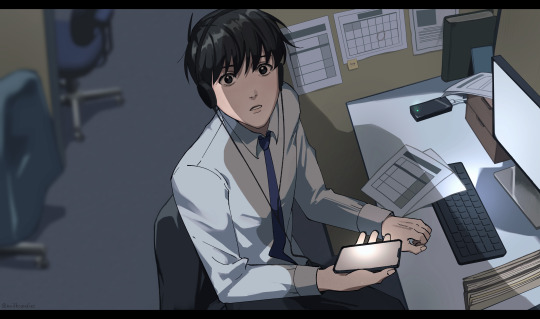

That was where the 'Kim Dokja' she remembered was.
438 notes
·
View notes
Text
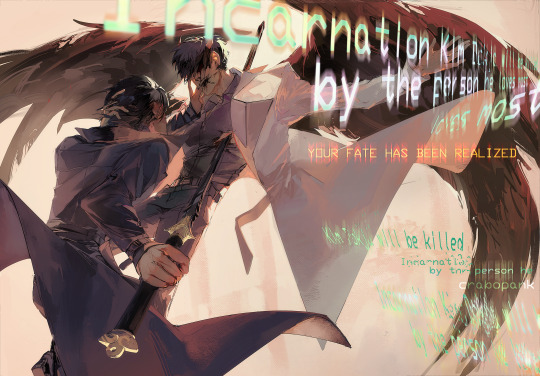
Incarnation Kim Dokja will be Killed by person he loves most
2023 zine work
101 notes
·
View notes







